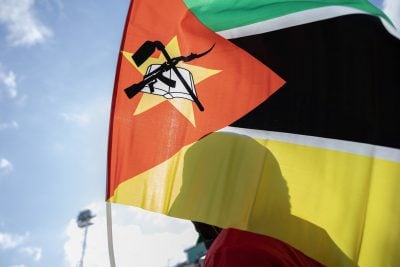Zambia’s international creditors, meeting under the “Common Framework” set up by the G20 and the Paris Club, issued a statement on 18 July that clears the way for the IMF board to sign off on a $1.4bn three-year programme for the country.
The Common Framework was set up by the G20 and the Paris Club to help more than 70 countries face the fallout from the pandemic with debt relief and restructuring. Zambia was one of the first countries to apply to in order to restructure its unsustainable debt load and unlock IMF funding.
The creditor committee says that it “supports Zambia’s envisaged IMF upper credit tranche (UCT) program and its swift adoption by the IMF Executive Board to address Zambia’s urgent financing needs”.
The committee will negotiate terms of restructuring of their claims, to be finalised in a memorandum of understanding and expects Zambia to “seek from all private creditors and other official bilateral creditors debt treatments on terms at least as favorable as those being considered by the creditor committee”.
A few days before the creditors’ meeting, Gerry Rice, director of communications at the IMF, had affirmed in a press briefing that the IMF would consider a new bailout package for the country if the creditors meeting “can succeed in providing the financing assurances“.
IMF chief Kristalina Georgieva welcomed the news on Twitter:
Zambia’s road to unlocking IMF funding
Zambian officials attended a first meeting of the country’s international creditor committee on 16 June.
The official creditor committee consists of members of the Paris Club, an informal group of Western creditor countries which considers how to restructure loans, and China. The Zambian officials joined the meeting in Paris by video link.
In 2020, Zambia suffered the first pandemic-era sovereign default. At the end of 2021 it had external debt of $17.27bn, according to government data. Approximately $6.6bn of that was held by 18 official and commercial Chinese financiers.
In December, Zambia reached a staff-level deal with the IMF for a $1.4bn three-year extended credit facility. But for the bailout package to move forward, Zambia needs assurance from creditors that its debt can be restructured.
Following meetings in Lusaka with President Hakainde Hichilema and finance minister Situmbeko Musokotwane on 15 June, deputy managing director of the IMF Antoinette Sayeh stressed the need to reach a deal on Zambia’s debt crisis and called on all creditors to quickly find an arrangement.
“We urge creditors to provide financing assurances as soon as possible, as they are needed before staff can put forward Zambia’s program for consideration by the IMF Executive Board. This will allow Zambia to access Fund resources, and also unlock access to critical financing from other partners, to help boost its economic recovery,” said Sayeh.
Hopes of reaching a deal
Claims that China was holding up Zambia’s debt relief because of lack of experience with tricky debt restructurings and slow coordination among its public lenders have made Chinese creditors keen not to be seen as the impediment to a potential debt deal.
“There’s an emerging consensus that some kind of deal will be reached. The Chinese are very concerned about the optics of what happens in Zambia,” said Eric Olander, editor in chief of The China-Global South Project website at the time of the first meeting.
“China and other bilateral creditors do not want to be seen as the impediment to the IMF bailout,” he argued.
At the first meeting, Zambia presented its case for debt relief.
“These are not going to be easy discussions,” said Olander. “The Chinese coalition alone is made up of at least a dozen different creditors so just getting them to agree with one another is not going to be easy, much less with the multilaterals, bondholders, and other bilateral lenders.”
President Hichilema has come a long way in mending fences with the IMF after the rocky relations experienced under his predecessor, Edgar Lungu.
Following Zambia’s sovereign default, the G20 feared a “debt tsunami” could engulf the continent’s most heavily indebted nations, so along with the Paris Club it set up the Common Framework.
However, the Paris Club needed the cooperation of China, which is not a member, given the high proportion of Zambia’s debt held by Chinese lenders, and in early May it was announced that China would co-chair the official creditor committee with France.
The talks will determine whether Chinese and international lenders can work side by side to set up a concrete debt revamp plan, which could also pave the way for debt-restructuring talks between Chinese institutions and other indebted countries.
Will the bailout solve Zambia’s problems?
“Unless Zambia has a clear plan for reviving its economy, taking account the risks of interest rates rising and a risk-ridden and uncertain global economy, it’s very unclear if any bailout today will really help in the medium-term,” economist Hannah Ryder told African Business at the time of the first meeting. “It’s all about the quality of how Zambia spends now – and if that spending is not growth enabling, I am not convinced of significant progress.”
As the deal was announced, Ryder drew attention on Twitter to measures the government of Zambia had taken to discontinue a number of loan financed projects.
Article updated on 30 July 2022. Additional research by Charles Dietz.
Want to continue reading? Subscribe today.
You've read all your free articles for this month! Subscribe now to enjoy full access to our content.
Digital Monthly
£8.00 / month
Receive full unlimited access to our articles, opinions, podcasts and more.
Digital Yearly
£70.00 / year
Our best value offer - save £26 and gain access to all of our digital content for an entire year!
 Sign in with Google
Sign in with Google 



